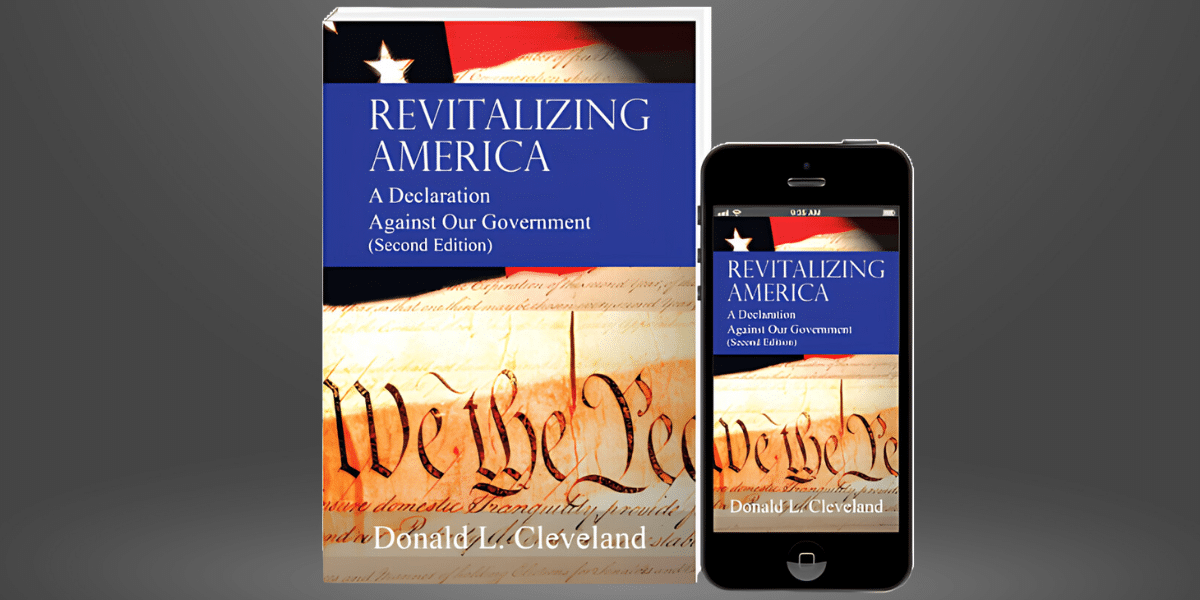In today’s volatile political environment, Revitalizing America Now emerges as a significant force, pushing for sweeping reforms and integrity in governance. At the heart of this movement is Donald Cleveland’s pioneering book, “Revitalizing America: A Declaration Against Our Government,” which serves as both a call to action and a detailed blueprint for legislative and ethical reform in the United States.
Core Message of the Book
“Revitalizing America” articulates a vision where the government adheres strictly to the promises laid out in the Declaration of Independence and the Constitution. Cleveland’s work is more than a critique—it is a constructive approach to rethinking how laws are made and followed. The book exposes various ways the government has deviated from its foundational promises and offers clear, actionable steps to realign with those original ideals.
The YouTube Channel as an Educational Tool
Complementing the book, Revitalizing America Now operates a YouTube channel that delves deeper into the issues raised in its pages. The channel not only discusses historical injustices and legislative failures but also highlights current events that underscore the need for reform. A recurring theme is the alleged ethical breaches by high-profile figures in American politics and judiciary, which the channel uses to illustrate systemic corruption and the urgent need for transparency and accountability.
Highlighting Ethical Concerns in the Judiciary and Congress
A focal point of Cleveland’s criticism is the behavior of certain Supreme Court justices, particularly Justice Clarence Thomas, who has been accused of accepting expensive gifts from wealthy benefactors without recusing himself from cases that might pose conflicts of interest. Such actions, Cleveland argues, undermine public trust in the judiciary’s impartiality and integrity, making a strong case for why ethical standards need to be vigorously enforced.
Similarly, the channel and the book scrutinize figures like Nancy Pelosi and other members of Congress who have reportedly benefited financially from insider information. These examples are used to highlight the broader issue of financial dealings within Congress that appear to exceed the bounds of ethical legislative behavior. Cleveland’s narrative suggests that such practices not only erode public confidence but also detract from the lawmakers’ primary duty to serve the public interest.
Strategic Plans for Public Engagement and Legislative Reform
Revitalizing America Now is not just about identifying problems. Cleveland outlines a comprehensive strategy for engaging the public and influencing legislators. Through the distribution of contracts to congressional candidates, as detailed in his book, Cleveland seeks commitments that these future lawmakers will adhere to a higher standard of transparency and accountability.
The initiative’s website serves as a hub for these efforts, offering resources for education and avenues for activism. It invites visitors to contribute to the cause, emphasizing that public funding is crucial for maintaining independence and pushing for substantial legislative change. The website also acts as a portal for updates and ongoing discussions about the movement’s progress and challenges.
The Path Forward
As Revitalizing America Now continues to gain traction, the combination of detailed legislative proposals, robust public engagement through digital media, and a call for ethical reform across all levels of government defines its path forward. The initiative’s reliance on historical documents to frame its arguments not only lends gravitas to its message but also connects deeply with those who hold the nation’s founding ideals in high regard.
Published by: Nelly Chavez


















